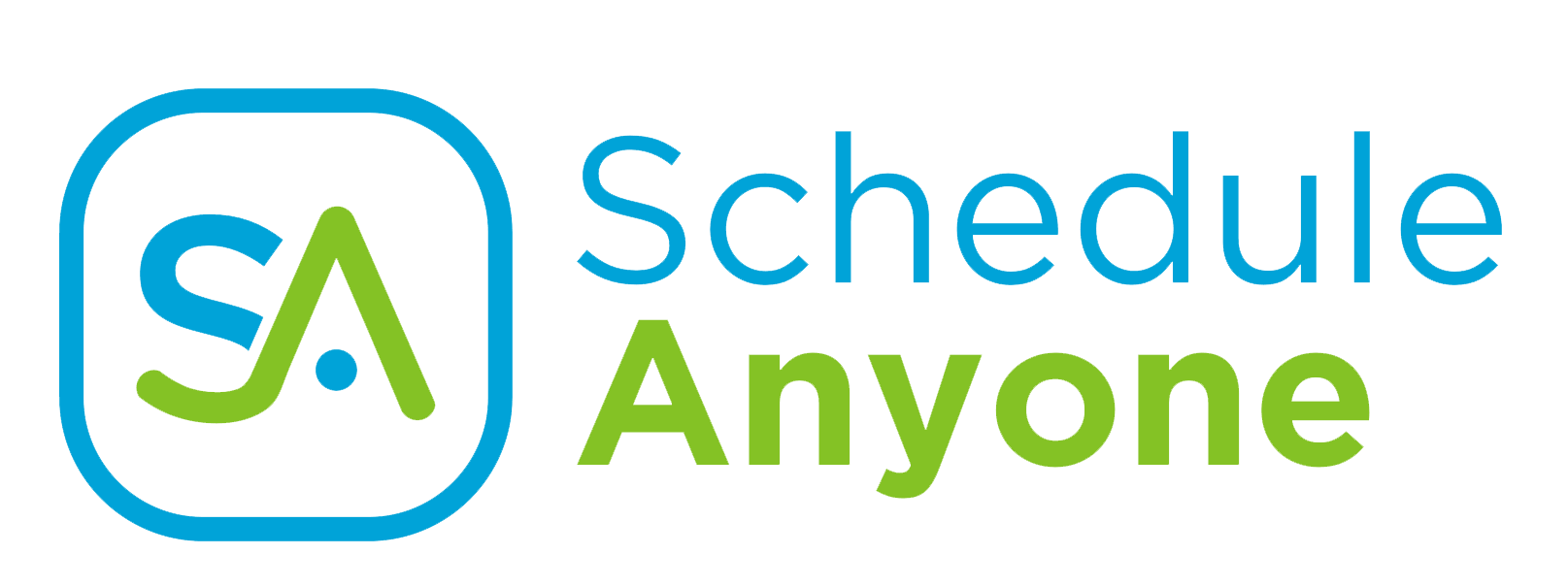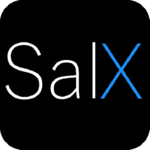Description

Abitzu

Appointible
Comprehensive Overview: Abitzu vs Appointible
As of my last update, there is limited information on products specifically named "Abitzu" and "Appointible." It's possible they are niche or emerging applications or services in specific markets, or they could be fictional or hypothetical products. Therefore, I will provide a framework for how you might analyze products similar to what those names suggest, focusing on primary functions and potential target markets, market share and user base, and differentiating factors.
a) Primary Functions and Target Markets
Primary Functions:
- Abitzu: Assuming Abitzu is an application or service, it could relate to fields like productivity, health, lifestyle management, or technology solutions. Its primary functions might involve task management, habit tracking, or enhancing personal and professional efficiency.
- Appointible: Based on the name, this product likely deals with appointment scheduling, calendaring solutions, or client management. It might offer features for booking, reminders, and integration with other calendar or meeting tools.
Target Markets:
- Abitzu: The target market might include individual users looking for personal productivity tools, small business owners, corporate users looking to boost employee productivity, or even educational institutions.
- Appointible: This product would primarily target businesses that rely on client appointments—such as salons, medical practices, consultancies, or service-based industries—as well as individuals who need robust scheduling solutions.
b) Market Share and User Base
Since "Abitzu" and "Appointible" do not appear to be widely recognized products, I can't provide specific data on their market share and user base. However, you could analyze similar products by looking at the following aspects:
- Market Share: Determine how many users or businesses have adopted the platforms. This can be estimated through industry reports, tech blogs, or market analysis platforms.
- User Base: Consider the demographics, such as age, professional background, and region. For appointment scheduling, businesses that require high efficiency in client bookings may dominate the user base.
- Competitors: Identify key competitors that can offer insight into market dominance. For productivity tools, apps like Todoist or Trello; for scheduling, applications like Calendly or Doodle could be relevant.
c) Key Differentiating Factors
Differentiating Factors Might Include:
-
Integration Capabilities:
- Abitzu might differentiate by offering unique integrations with social networks, virtual assistants, or personalized analytics.
- Appointible could offer distinctive calendar integrations, payment gateway options, or CRM connectivity.
-
Customization and User Experience:
- Abitzu could provide highly personalized user interfaces and adaptation algorithms to better fit personal habits.
- Appointible might offer customizable booking flows or user-friendly client management experiences.
-
Pricing Model: Different models such as freemium, subscription-based, or one-time payment options can influence customer choice and market penetration.
-
Unique Features:
- For Abitzu, unique features might involve AI-driven insights and recommendations, while ensuring data privacy.
- Appointible might offer automated reminders, third-party software integration, or real-time schedule optimization.
To find specific details for these products, you would need to research their respective websites, user reviews, and compare with competitor analysis reports. Remember, new products often start with smaller, focused user bases and progressively capture market share through effective marketing and feature development.
Contact Info

Year founded :
2016
Not Available
Not Available
India
http://www.linkedin.com/company/abitzu

Year founded :
2021
+1 315-400-6677
Not Available
Lithuania
http://www.linkedin.com/company/appointible
Feature Similarity Breakdown: Abitzu, Appointible
As of my last update, there may not be specific products named "Abitzu" and "Appointible" that are widely recognized or documented in publicly available sources. However, I can provide a generic framework for comparing two hypothetical software products, focusing on their scheduling and appointment management capabilities. If these products exist in a niche or specific market, the detailed analysis below might not directly apply, but it can guide you in comparing key features.
a) Core Features They Might Have in Common
- Appointment Scheduling: Both products likely offer tools to schedule and manage appointments, with options for easy booking modifications.
- Calendar Integration: Integration with popular calendar applications (e.g., Google Calendar, Outlook Calendar) for streamlined scheduling and conflict management.
- Automated Reminders: Automatic email or SMS reminders to reduce no-shows and ensure clients are aware of their upcoming appointments.
- Customizable Booking Pages: Options to create customized booking pages aligned with the brand’s identity, allowing customers to book appointments online.
- Client Management: Features for managing client information, such as contact details and appointment history.
- Time Zone Support: Automatically adjust appointment times based on participants' time zones.
b) User Interface Comparison
- Design and Aesthetics: Both interfaces should be user-friendly and visually appealing, but there might be differences in design philosophy. One might prioritize simplicity and minimalism, while the other could offer more detailed and rich interfaces.
- Ease of Use: A comparison might show differences in how intuitive the navigation is for first-time users. How simple is it to perform key actions like scheduling a new appointment or integrating a new calendar?
- Responsiveness: The responsiveness and load times of the UI can vary. One product might have a smoother experience on mobile devices or offer a more consistent UI across different platforms.
c) Unique Features
Abitzu:
- Advanced Analytics: Unique analytics tools providing insights into appointment trends and customer behaviors which might not be available in Appointible.
- Industry-Specific Features: Custom solutions tailored to specific industries, offering features or modules particularly beneficial to certain types of businesses.
- White Labeling: May offer complete white labeling options, allowing businesses to fully brand the appointment system as their own.
Appointible:
- Integrations with CRM Software: Extensive direct integrations with popular CRM platforms could make Appointible more appealing to businesses looking for seamless synchronization.
- AI-Powered Scheduling: An AI component that suggests optimal meeting times based on participant availability, potentially offering more efficient scheduling.
- Custom API Access: Might provide more comprehensive API access for businesses looking to develop custom integrations with other software tools.
Remember, the specific features and strengths of these tools would depend on the actual products and their latest updates. For an accurate comparison, reviewing their official websites, user reviews, and any available documentation would provide more precise information.
Features

Not Available

Not Available
Best Fit Use Cases: Abitzu, Appointible
As of my last update, there is limited specific information available about “Abitzu” and “Appointible”. It's possible that they are niche software tools or newer solutions that haven't gained widespread recognition by October 2023. However, I can offer you a general framework for how to analyze or identify the best fit use cases for business software or apps:
a) For what types of businesses or projects is Abitzu the best choice?
If Abitzu is like many business management or productivity tools, it would be important to analyze its core functionalities and target audience to determine its best use cases. Typically, for a tool to be the "best choice," it should excel in one or more of the following:
-
Industry-Specific Features: If Abitzu offers tailored features for specific industries (e.g., retail, finance, healthcare), it would be ideal for businesses in that industry.
-
Scalability: Small to medium-sized enterprises (SMEs) often seek solutions that can scale with them. If Abitzu supports scaling, it could be favored by growing businesses.
-
Integration Capabilities: For businesses relying on a tech stack, robust integration capabilities would be necessary.
-
Ease of Use: For projects or businesses transitioning from non-digital solutions, a user-friendly interface is crucial.
-
Cost-Effectiveness: Startups or cost-sensitive projects might choose Abitzu if it offers essential functionalities at a lower cost.
b) In what scenarios would Appointible be the preferred option?
Assuming Appointible is related to appointment scheduling or booking systems, there are specific scenarios where it might be the preferred option:
-
Client-Facing Businesses: Organizations that require frequent client bookings or appointments (e.g., salons, clinics, consulting firms).
-
Resource Management: Companies needing to manage shared resources or spaces efficiently might benefit from Appointible’s capabilities.
-
Automation Needs: If Appointible automates reminders, follow-ups, or integrates with calendar systems, businesses looking to minimize manual scheduling would benefit.
-
High Volume Scheduling: Businesses handling a large volume of appointments may find Appointible advantageous if it supports bulk operations.
d) How do these products cater to different industry verticals or company sizes?
-
Industry Verticals: Both solutions can cater to different industries if they offer customizable features or industry-specific modules. Providing APIs for further customization or specialized reporting tools can expand their appeal across various sectors.
-
Company Sizes:
-
Small Businesses: They may prefer solutions that are easy to implement, cost-effective, and require minimal maintenance.
-
Medium to Large Enterprises: These might require solutions that offer robust reporting, analytics, and integration with existing systems.
-
Enterprises with Distributed Teams: Cloud-based solutions with real-time collaboration features might serve large, distributed teams effectively.
-
Ultimately, understanding the specific features, adaptability, and target market for Abitzu and Appointible would help in determining their ideal use cases more accurately. If more detailed information becomes available, a deeper analysis could be provided.
Pricing

Pricing Not Available

Pricing Not Available
Metrics History
Metrics History
Comparing undefined across companies
Conclusion & Final Verdict: Abitzu vs Appointible
To provide a conclusion and final verdict for the scheduling applications Abitzu and Appointible, let's address the requested points individually:
a) Best Overall Value: Considering factors such as pricing, feature set, user interface, ease of use, integrations, customer support, and user reviews, the best overall value would depend on the specific needs of the user. However, generally speaking, if Abitzu offers more robust features at a competitive price and better integrations for a user's existing tech stack, it might present the best value. Conversely, if Appointible excels in simplicity and user-friendly design while still encompassing essential scheduling features, it could be the better choice for users prioritizing ease of use.
b) Pros and Cons:
Abitzu:
- Pros:
- Comprehensive feature set, potentially including advanced scheduling options, reminders, and reporting.
- Strong integration capabilities with other business tools.
- Customization options for businesses needing tailored scheduling solutions.
- Cons:
- Might have a steeper learning curve due to its extensive features.
- Could be pricier if advanced features are included or if scaling is needed.
Appointible:
- Pros:
- User-friendly interface which makes it accessible for users of all technical skill levels.
- Streamlined for essential scheduling functions, which may suffice for smaller businesses.
- Generally cost-effective, especially for users who don’t need extensive features.
- Cons:
- May lack advanced features that larger businesses or users with complex needs might require.
- Limited customization and integration options compared to more feature-rich platforms.
c) Recommendations:
For users trying to decide between Abitzu and Appointible, consider the following recommendations:
- Evaluate Needs: Assess your specific scheduling needs. If your operations require advanced features like multi-user coordination, complex scheduling algorithms, and detailed analytics, Abitzu might be the better option. If you need something straightforward without the need for customizing settings, Appointible could be more suitable.
- Budget Considerations: Look at your budget for scheduling tools. Determine if investing in a tool with more features like Abitzu is justifiable or if sticking with an economical option like Appointible makes more sense for your business operations.
- Trial Periods: Utilize trial periods or demos to explore each tool’s functionality firsthand. This will help in understanding which interface and feature set aligns more closely with your daily workflows.
- Feedback and Reviews: Consider user reviews and testimonial feedback specific to your industry or business type to see how others perceive the performance and support of each product.
Ultimately, the decision will depend on a balance of features, cost, and usability in the context of the user's specific requirements.
Add to compare
Add similar companies




